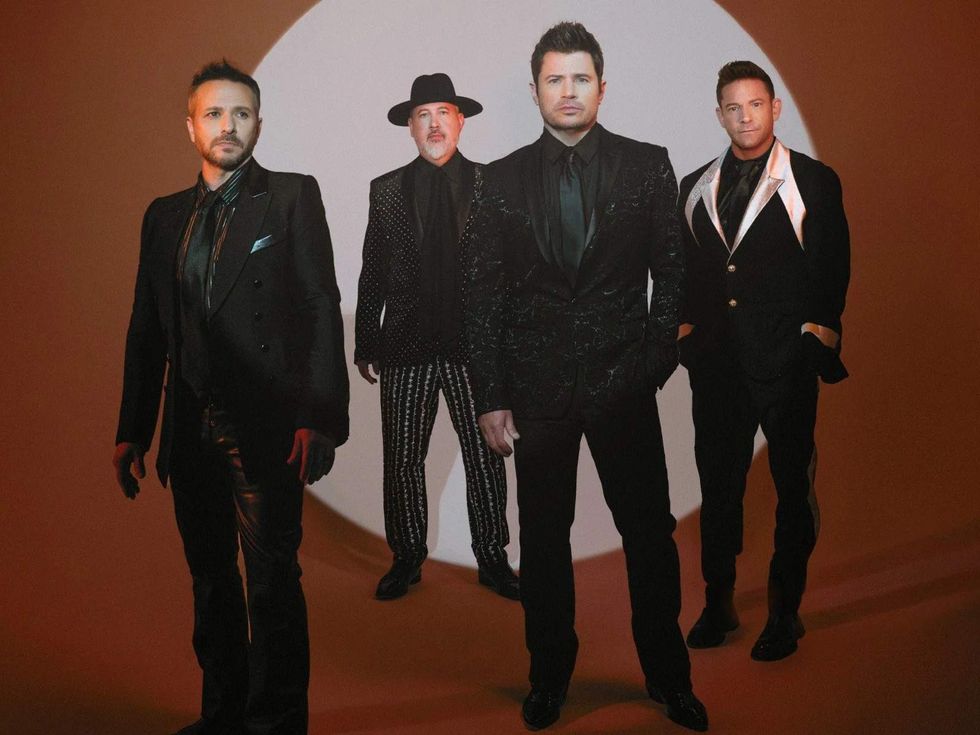It’s Thanksgiving Day Weekend, which means that people all over will be coming together for tasty meals.
In addition to the big meal and Black Friday shopping, we’ve still got some festive, Mariah-season events popping off this weekend, including a couple holiday-themed pop-ups, a couple Christmas-y stage productions, and the opening of a new skating rink.
And, for all the millennial moms out there, the co-host of Love is Blind will be around to sing for you.
Thursday, November 27
76th Annual H-E-B Thanksgiving Day Parade
The 76th Annual H-E-B Thanksgiving Day Parade is once again rolling through downtown. As one of the oldest Turkey Day parades in the nation, this beloved tradition draws tens of thousands of Houstonians together to celebrate each year. This year's parade promises to be bigger and better than ever, with more elaborate floats, dazzling performances, and non-stop energy and fun for the entire family. Don't miss the chance to kick off the holiday season with this unforgettable Houston tradition. 8 am.
Jingle Bell Bar
Jingle Bell Bar will return over at Latin-inspired, River Oaks cocktail bar Botonica. The immersive holiday experience features curated rooms with floor-to-ceiling decor, twinkling lights, themed installations, and multiple photo-ready moments throughout the space. Patrons can enjoy a seasonal menu of holiday-inspired cocktails, limited-time food offerings, and weekly programming designed to elevate the festive atmosphere. Through Sunday, December 28. 4 pm (2 pm Saturday and Sunday).
EZ’s Liquor Lounge presents Thanksgiving Potluck
If you prefer to spend a drama-free Thanksgiving away from the fam, EZ’s Liquor Lounge always has room at their table. The Heights neighborhood bar will host its annual Thanksgiving community potluck, with owner Matt Tanner serving up his signature goose and andouille gumbo. Everyone’s invited to bring a favorite dish or simply come and enjoy the good company. 6 pm.
Friday, November 28
Alley Theatre presents A Christmas Carol
So, it’s that time of year when Charles Dickens’ classic story gets done onstage. This weekend, you can either check out the drunk version, or celebrate the holidays with the Alley’s hit new adaptation, complete with colorful Victorian costumes, special effects, magic, dancing, and just the right blend of – wait for it! – Christmas carols. It is a dazzling Christmas feast with the beloved story of Ebenezer Scrooge and his miraculous transformation. Through Sunday, December 28. 1:30 and 7 pm (1:30 and 6:30 pm Sunday).
Ice Village at Rice Village Grand Opening
Rice Village will transform into a winter wonderland with the debut of Ice Village, the district’s first-ever ice-skating rink. Festivities will include skating under the stars, a Santa’s workshop with Santa photos, a 24-foot Christmas tree, and a festive holiday market atmosphere illuminated by sparkling lights and local vendors like Tiny’s Milk & Cookies and a Ron’s Pub pop-up. Ice Village will feature themed nights and photos with Santa on select dates. Through Sunday, January 4. 5:30 pm.
Erykah Badu in concert
Badu has released six albums in her career, including her recent AbI & Alan collab with hip-hop producer The Alchemist. But Badu is on the road for the 25th anniversary of her 2000 sophomore album Mama’s Gun. The feminine counterpart to D’Angelo’s 2000 second album Voodoo (both albums were simultaneously produced and recorded at Electric Lady Studios in New York), Gun is a neo-soul masterwork – and, for two nights, Badu will be performing it in its entirety. 8 pm.
Late Night Booty Call presents Friendsgiving
The party series Late Night Booty Call is welcoming all who want to come and participate in this wholesome, post-Turkey Day gathering. They’ll start things off with a community potluck and holiday market, followed by a late night dance hub/karaoke featuring DJs Malcolm Bravo, Doc Guava, Hollaway, and Beauty Sleep. They’ll be accepting all potluck Thanksgiving dishes, snacks or desserts. Donations and a portion of the proceeds will go to non-profit partners Food Not Bombs. 8 pm.
Saturday, November 29
Discovery Green presents Green Mountain Energy Ice
At Green Mountain Energy Ice, visitors can glide beneath the glittering lights of downtown Houston and discover the holiday magic at Discovery Green. On Cheap Skate Mondays, skating is half off, $9 + tax per person (includes skate rental). Other theme nights include DJ Skate Night Saturdays, Skating with the Stars, Skating with Santa!, Inclusive Skaters Night, Wine Down Wednesdays, Kids Skate Free Thursdays, Galentine's Day, and Valentine's Day. For full information, go to the event website. Through Monday, February 16. 11 am.
Karbach Brewing and Texas Salsa Congress present ¡Mambo Con Azúcar!
In collaboration with event organizers Texas Salsa Congress, Karbach Brewing will be throwing ¡Mambo Con Azúcar!, a high-energy celebration in its biergarten led by Tito Puente Jr., carrying on the legendary rhythm and legacy of his father – the “King of Latin Music” – Tito Puente Sr. This party is certainly double-stuffed: live bands Grupo Latitude and Shekere Latin Band playing salsa rhythms, DJs spinning Latin and global beats, Latin-inspired food vendors, an art and vendor market, chalk art, etc. This event is free and open to all ages. 4 pm.
Stages presents It's a Wonderful Life: A Live Radio Play
This performance brings the beloved holiday classic to life in a unique and heartwarming way. Set in a 1940s radio station, the show features live sound effects, commercial breaks, and a talented cast bringing the iconic characters of George Bailey, Mary Hatch, and Clarence the angel to the stage. 7 pm (2 pm Sunday).
The Continental Club presents Sorry, Sarah Album Release Party
Houston-based, indie alt-rock band Sorry, Sarah released their self-titled debut this month. To celebrate, they’ll be throwing an album release party over at Continental Club this weekend. Fronted by songwriter/guitarist/vocalist Sarah Hobson, their sound is rooted in alternative rock and colored by the dreamy textures of shoegaze and indie. Jimmy Bent's expressive lead guitar creates a layered soundscape, accompanied by driving rhythms from drummer Sam White and bassist Madison Cooke, to build lush, genre-blending songs. 9 pm.
Sunday, November 30
Yuma HTX Holiday Sandwich Pop-Up
Cuban and Brazilian sandwich pop-up Yuma HTX is rolling out two holiday-themed sandwiches over at Third Place. The first, the Leftover Gringo, features roasted turkey folded into a creamy blend of Catupiry and corn casserole, layered with Peruvian pearl peppers, gruyère, and a touch of Yuma's house tinga sauce. The second, Black Gold, is made with smoky black beans, slow-braised pork belly, bacon, and Calabresa sausage, served with garlicky greens and gruyère on toasted Cuban bread. 11 am.
The Museum of Fine Arts, Houston presents Spartacus
Spartacus (Kirk Douglas), born and raised a slave, is sold to gladiator trainer Batiatus (Peter Ustinov). After weeks of being trained to kill for the arena, Spartacus turns on his owners and leads the other slaves in a revolt against the Roman Republic. A standout from the “Swords and Sandals” genre of movie epics, directed by a young Stanley Kubrick, this 1960 Oscar winner complements the MFAH’s Art and Life in Imperial Rome: Trajan and His Times exhibition. 2 pm.
98 Degrees in concert
Hop back to the golden age of bubblegum pop as not one but two boy bands from that era will be in H-Town this weekend. 98 Degrees comes to Sugar Land in support of Full Circle, their first album in eight years. Sure, they move like drunk uncles at a cookout these days. But heartthrob-turned-Love Is Blind host Nick Lachey and his boys are still ready to throw down. They'll be joined by special guest O-Town – aka that group that was formed from the first season of Making the Band. 7:30 pm.
Photo by Richard Carson
H-E-B hosts the annual Thanksgiving parade downtown.





